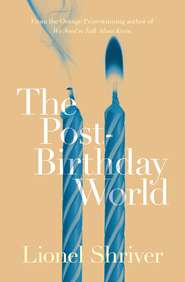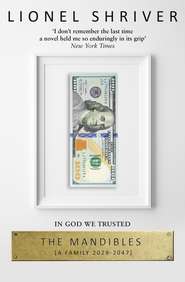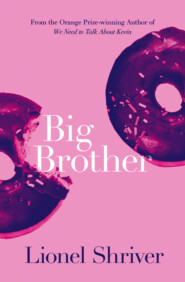По всем вопросам обращайтесь на: info@litportal.ru
(©) 2003-2024.
✖
Ordinary Decent Criminals
Автор
Год написания книги
2018
Настройки чтения
Размер шрифта
Высота строк
Поля
If so, Farrell hadn’t succeeded. Throwing insults at Porter Edwards Bream was like flinging Harp tins at a Saracen. Farrell could almost hear the clink, the harmless rattle down the street. He felt childish.
“I didn’t come here for sophistry,” Farrell dignified. “I suffered my share in your pretentious little volume, Kahlil Gibran Joins the Army. I need information, and about bombs, not about my soul.”
Porter’s smile spread like something spilled. “Liar. Besides, shaking out your grubby bathmat of a shadow is about all I can offer. The only thing an intelligent man wants to know about bombs is where they are, so he can arrange to be somewhere else. And the Confidential Telephone no longer rings on my desk, boyo.”
The bottle trickled down steadily as an hourglass. Farrell could not remember a more exhausting session before or since. “If you’re supposed to know so bloody much,” Farrell slurred, “see so bloody much, what can you see in me, fella? Mystic guru bomb man? Oh, X-ray vision ATO?”
“I have seen through pressboard.” Porter nodded; his eyes, for the all-seeing, had grown remarkably tiny. “I know what’s inside a bomb by looking at it, though that took years. How they tick, people are easier. Come with instructions printed on the box.”
“And what have you told me, huh, fella? Codswallop.”
“Jesus God, you are desperate,” Porter whispered.
“Holding out? Don’t want to give away the big secret about O’Phelan? Know how many theories I inspire in Belfast? Think you’re the first shaman to come along? Dozens. Women. Dozens. They’re writing novels, some of them. Wanna write a book? About me? Better’n Device. Wick title. Wick book …”
“Go ahead, kick at me all you like. That’s safe. I should keep you here, harmless. Neutralized.”
“With all this revelation about my deep inner self, how could I ever leave?”
“All right …” Porter grumbled. “You want something? A tidbit, a morsel, proof? Why so anxious for what you already know? That you are a bully. That you’re bigger and stronger than you pretend. Asthmatic? Poser! And part of your power is getting people to feel sorry for you.”
Abruptly, Farrell cried. The charges slipped into a tiny hole in his side. “It’s not fair, is it?” he blubbered. “They do, they all feel sorry for me. Bugger, and every one of them’s worse off by far—debt, dead fathers, husbands in gaol … They think that’s all perfectly normal! Me, I’ve always had enough to eat. My mother probably bleeding loves me, even if I can’t admit it. And, Port old boy, I can’t explain it, but lately women fawn all over me. One more potted egocentric. You and I, we’re the same, and you revolt me.”
Farrell sniffled; Bream fell asleep.
It may have been an hour later that Porter roused himself from a snore. “My poor fanatic!” he sighed, air puttering from his fat lips. “Seared by the agony of the world.”
Farrell looked hard. Was he joking? But Porter went back to sleep with a little smile. This was the joke: that even myths need myths, or especially, and after years of soldiering on as one himself, Porter had knighted a Greatheart in his own study, a hero for heroes—now, Farrell lad, where would you get yours? It was a way of no longer taking Farrell seriously, for in an instant he transformed Farrell to a like-minded larger-than-life to adore or deplore, rather than one tall stranger on his doorstep with whom he might permit a smaller, more complex relationship that in the end is so much more flattering. Farrell was surprised to find his new title a demotion. He had been cursed: a Character.
So that last bit, it was nothing but meanness. But as for being a bully, Farrell subscribed. He didn’t change, mind you, but attended, how he enticed women with his own Troubles—now there was a capital T. The conceit was they wanted to cure him, but he discovered their sympathy was sicker than that: they thought his unhappiness was better than theirs. Incredibly, it was envy. The women saw themselves as merely neurotic, while Farrell O’Phelan was afflicted with the agony of the world—they could buy that? True, Farrell’s desolation was his pride and joy; all polished up, Estrin, it is my accomplishment. But the value of the dolor relied on mirrors; it was a magic show. Alone in a room, he knew it for a shabby thing: a worn top hat, a few cards, a rabbit. Farrell’s Troubles were just like theirs: his only access to the agony of the world was his own, one more private purgatory of billions, and this was the secret Porter wouldn’t tell and Farrell intended to keep.
Like Estrin’s monks, it was a circle: outsiders assumed Farrell was a saint; Farrell knew he was a shite; but, “The final irony,” Bream noted casually a few weeks later as they dissected the mercury tilt switch, “is you’re actually much nicer than you know.”
You never explained,” Estrin pursued, “what got you into bombs in the first place.”
“You like stories out of order. Why don’t we begin with why I quit.” He motioned for the check. “But first we will prop you on three fat pillows with a mug of hot chocolate. That is what you need, my swallow. For just taking your head off to the contrary, I learned from my work that I can be quite compassionate.” He sounded perplexed.
chapter eight (#ulink_c19cdcbd-8928-579b-8325-9b2a9278b758)
Big Presents Come in Small Packages (#ulink_c19cdcbd-8928-579b-8325-9b2a9278b758)
Even before it fell to him altogether, Farrell had unofficially headquartered in Whitewells, coopting upper rooms for the private hair-tearing of women sure they’d been followed from Turf Lodge. From early on, he and the hotel were fated for each other. Amid so many alienated factions, Farrell and this institution were alienated from every faction. Where the one solace of having enemies is having allies, where the one comfort of having parts of town you cannot go to is parts you can, Farrell operated alone, equally unwelcome everywhere, only in this lobby at home. They were exiled lovers, on an island made of islands a flagless galleon, precariously afloat; in their grandiosity and hauteur, both anachronistic and often disliked, for they would not apologize for having a little class in a city that exalted tatty wool caps and outdoor toilets as badges of socialist nobility. Technically Catholic, but declared by all sides open season, together they shipped an indiscriminate aversion in a place that recognized as valid any position but none.
For it was inexplicable how either Whitewells or O’Phelan had persisted. When the first rumors circulated of Farrell’s one-man bomb disposal and dirty-tricks squad, locals laughed and acted surprised when they met him alive at the end of the week. Likewise, Whitewells, festooned up there on Royal Avenue, about the only truly splendid architectural enormity left in all of Belfast besides City Hall itself, had about as good a chance of surviving twenty years of bombings as a Methodist all kitted out in his orange sash pounding a Lambeg drum down the back streets of Ardoyne. With the Provos, the Stickies, the Irps, and a whole smattering of Loyalist paramilitaries from the UFF to the Shankill Butchers on the one side, and Farrell, six four maybe, but a Bergen-Belsen 155, and a ten-floor Baroque bull’s-eye on the other, any shrewd bookie would give O’Phelan and his ridiculous hotel fifty to one. Yet despite the odds, Whitewells had still not been intimidated into the loose chippings and landfill of more acquiescent buildings; and Farrell continued to gangle into her lobby without a gun. Farrell and Whitewells recognized each other as being equally implausible.
Besides, the bar served Farrell after hours and didn’t turf him out when he became—ah—expansive. Brandy and port came in snifters large enough for Farrell’s attenuated fingers, where down the road they’d pour VSOP in a water glass, and when a drink looks like swill it could as well be. As for wine, they didn’t stock the whites you could pour over ice cream. But it was whiskey Whitewells understood best, not just Black Bush but Crested Ten and Jameson’s 1780; Islay malts, Bowmore, The Macallan, Laphroaig. When they made it hot, they warmed the glass and dissolved not too much sugar, pressed cloves neatly into the zest, and squeezed the lemon, and as for proportions, they seemed to understand that the charm of the drink did not rest in its hot water.
Then, the generous character of Whitewells was a credit to Eachann Massey, a man whose problems were matched only by his patience in their wake, one of those exemplars who serve as veritable advertisements for suffering: surely if pain produced such grace it was underrated. His wife had walked into the wrong grocery back in ’71 and inadvertently become one of the vegetables—no, you see, this is just the kind of joke Eachann had been easy with himself. Eachann’s life might have been better off with a few more pounds of explosive under that counter, for she lived three more years propped in the kitchen by the radio, spud eyes, her hands moist and flaccid like overdone cabbage. Berghetta had been a lively, sarky woman, with a bit of a sally to her, a wide turn-of-the-century sway to her hips; it had been a fine marriage, and her death dragged out for months in anguish. Yet though the bomb was Provo, it made no impression on Eachann’s politics. He’d told her not to shop the Shankill anymore, but the stores were cheaper and close by and no one told Berghetta where to go. Besides, she’d not liked what was happening, and Berghetta was one of those people convinced enough of her own world that she was sure if she proceeded as if things were as she wished the universe would conform. If she shopped the Shankill as if it were safe, it would be safe. In a way she was right—if the whole Province refused to acknowledge the lines of battle, they would not exist.
However, they did exist for Eachann, who chose a position before or beyond disgust; Farrell respected such people, admired their ability to take a stand, however flawed, take responsibility for the consequences of that position, even as he loathed the rhetoric and closed-mindedness certainty implied. The shrapnel in his wife’s head had not fractured Eachann’s politics, because they were not reactive. He’d maintained an opposition to the British Empire that was thoughtful and impervious, and he never feared anything would happen to challenge his perspective. As a result, he’d been relaxed and relaxing, for he did not have to constantly flog his ideas to other people in order to sell them to himself.
For what the copious flow of foreign Experts so regularly failed to grasp here was the essential integrity of nearly every point of view. Each party had assembled a puzzle that fit together. The North as object was an ingenious curio which from one side appeared an ostrich; another, a postman; another, a washing machine. That’s why arguments never went anywhere: each picture was true. (In fact, the terror of completely looking at anything from another person’s perspective is that he is always right.) However, in the logical reasoning out of these positions, little girls’ scalps plastered to the sides of houses, kneecaps shattered into their cartilage, a great Victorian market mangled and gave way to slapped-up, slick-bricked shops with no memory of high hats and fine, tiny-handled tea sets but only of polyester knits and Tupperware and destruction. From these reasonable positions sprang unreasonable children, who threw petrol bombs not because they were Republican but because they were bored. Though Farrell may have relinquished the satisfactions of surety, he did cling to one vision: that here the cost of conviction had risen too high, and he refused to have its price exacted from his island.
Hence the saving of the hotel over and over, for Farrell would not have Whitewells taken from his world. He imagined that the bomb that got away would crumble him worst if he remained behind. In his nightmares he never dissolved in a flash of white heat, but was left kicking through another rubble in the city center, as he’d once scuffed through Smithfield Market, finding caps of Crested Ten, shards of snifters, spoons, melted picture frames, smoking tufts of brocade, breathing the stink of materials you’d never think would burn. Maybe it was warped to feel so deeply for a building, but Farrell did understand the affection designed into the neutron bomb. Still, it would take him several of these rescues and a last night to feel the same protective passion for his own life.
Bream taught Farrell all he knew, which is not to say they grew fond of one another. Farrell battled for hardcore information about how to neutralize a trembling fuse through a barrage of philosophy. Though the hemorrhaged corporal made an unlikely mystic, every switch had its tract, like the Salvation Army, where you had to sit through “Rock of Ages” to earn your soup. Even the way Bream referred to bombs suggested religious awe, rarely pronouncing B-O-M-B, but euphemizing, the thing, the device, what you’re dealing with, as the Orthodox avoid the real word for Jehovah. “Remember, no matter how many times you’ve seen the same box, the same size, the same switch, treat every device as a stranger.”
“I treat my own mother as a stranger,” Farrell quipped. “It shouldn’t be so hard with a crate.”
“On the contrary,” said Bream. “It’s bastards like you can get quite matey with crates.”
They worked late, and Farrell was not allowed any whiskey until eight—when Porter would intone, Ye-et I wi-ill be me-e-e-e-erry! like the end of Ramadan. Porter himself wouldn’t touch the stuff before the dot of noon.
“Who’s to say,” Farrell commented two weeks in, “I’m not in the IRA? In which case you’re a right eejit.”
“But you’re not.”
“No—”
“So I’m not.”
End of story.
“Besides,” Bream added the next week, picking up the way they did now, all conversations going on at once. “If you were a Provo, you might have had the courtesy to offer me a few quid.”
Farrell shrugged. “You didn’t ask.”
“You’re a taker.”
This was true. He sozzled Bream’s whiskey every night and never once replenished the cabinet. He sat down to meals and didn’t offer to wash up, didn’t question that the two women prepared them, and didn’t even learn their names. Odd, fresh from such a guilty childhood. But Farrell had indexed the population according to how comfortable they were taking, and how much. The more you took, the more you got. Farrell accepted what was given him not because he’d been a spoiled little boy but because he was clever.
Porter was a regular anthology of grim fairy tales, but Farrell didn’t always find these instructive—like the time Porter leaned over a clock and found the long hand actually touching the contact. The corporal ran. Nothing happened. Later he found that a blob of luminescent paint on the hand had insulated the metal from completing the circuit.
“So?” asked Farrell, annoyed. “You were lucky. Save the pointless anecdotes for the Rose and Crown.”
“There is a point. Never reduce yourself to luck. I shouldn’t have been bending over any clock.”
“Then get a desk job,” Farrell muttered.
“You have GOT to concede to operate remote!”
“I am tired of operating remote!” and though this was one more running argument, the cry came from so deep inside the Catholic that Porter retreated.
When Farrell left Beverly, Bream handed him a package of army pigsticks, all tied up like a pencil box for Farrell’s first day of school. There was no smooching, no promises that Farrell would be in touch. Farrell did hear, not much later, that Porter had snuffed it. His off-license, the Rose and Crown, even the taxi company that slopped the corporal into the back seat evenings—all sent flowers. Farrell didn’t. He felt no more grief over the old man’s death than he would have over his own.
Besides, in Belfast Farrell had his hands full, with a lot to learn. Bream was right, the technology was always evolving; you had to keep pace with the state of the art. “Irish, don’t study history for once!” Bream opined, warning that most of what he’d taught Farrell was outdated. “And every device captured alive is an informant.” For neutralized bombs weren’t simply triumphs but tiny universities you could take back home.
Farrell spent the evenings he was not out on call reconstructing the latest ingenuity, so when the circuit connected a light bulb went on. Good practice, lousy symbolism: explosion as bright idea. His homework grew more demanding by the day. The Provos were getting crafty at packaging, scrambling their tokens of affection with irrelevant wiring, so that radiograms looked like the scribbling of disturbed children. Some of these boxes, too, were so rife with anti-handling devices that getting inside was a Houdini demonstration in reverse, all locked with chains and ropes and handcuffs with a clock ticking.











